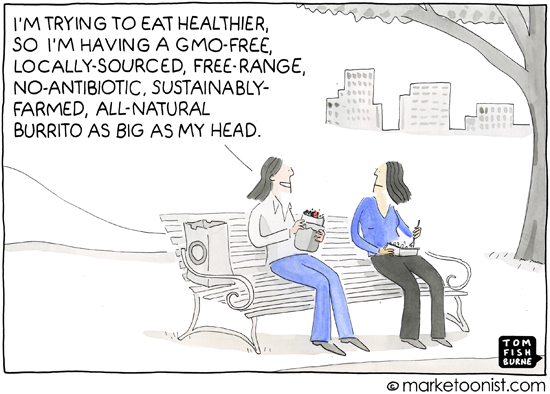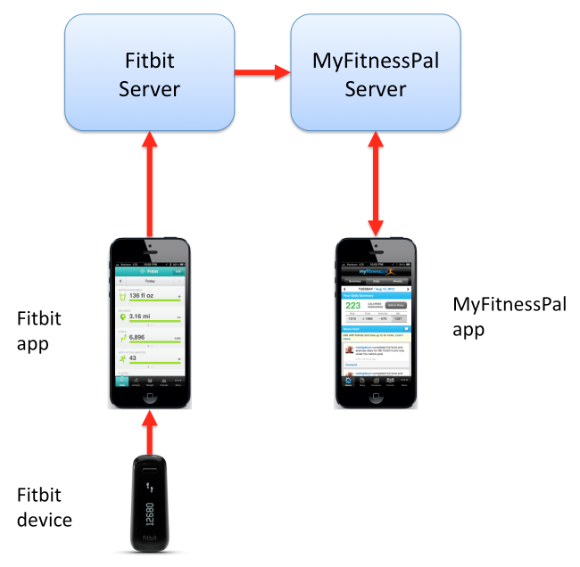Healthy Eating – Really?
Incorporating all the current health buzzwords in your diet doesn’t necessarily mean you are eating healthy:
Â
Tom Fishburne (aka Marketoonist)Â explains:
It’s a tricky time to be a food marketer. How consumers define what it means to be “healthy†is in flux. As a food marketing friend pointed out, consumers are increasingly prioritizing food purity over calorie count.
Chipotle is the poster brand for the current state of health positioning. They’re taking a leadership role in progressive stances like GMO-free and sustainable sourcing. And this obscures the fact that an average meal at Chipotle packs a whopping 1,070 calories, close to a full day’s worth of salt, and 75% of a day’s worth of saturated fat. A Chipotle burrito has more than double the calories, cholesterol, and grams of fat than a Taco Bell Supreme Beef Burrito.
It’s similar to soda makers that tout being “made with real cane sugar†or granola bars that are really glorified candy bars. There’s an aura of health that distracts from the actual nutritional picture. Researchers refer to this as a “health halo.â€
Maybe the biscuits and gravy I ate for breakfast yesterday weren’t so bad after all!


